IAHR Talks | Interview with Gregory Pasternack and Roser Casas-Mulet. Focus on ecohydraulics
#IAHRTalks
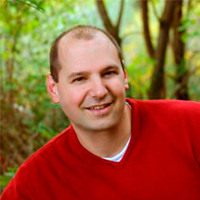
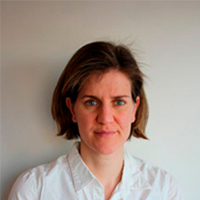 Gregory Pasternack, chair of the IAHR technical committee on Ecohydraulics, and Roser Casas-Mulet, member of the committee, share with us their views about ecohydraulics, forthcoming activities from the committee, including a session on ecohydraulics to be held at the First Young Professionals Congress this month and the upcoming International Symposium on Ecohydraulics webinar, as well as the role the association plays in this regard at the international level.
Gregory Pasternack, chair of the IAHR technical committee on Ecohydraulics, and Roser Casas-Mulet, member of the committee, share with us their views about ecohydraulics, forthcoming activities from the committee, including a session on ecohydraulics to be held at the First Young Professionals Congress this month and the upcoming International Symposium on Ecohydraulics webinar, as well as the role the association plays in this regard at the international level.
David Ferras, vice-chair of the IAHR technical committee on education and professional development, interviews Gregory and Roser.
When did you first hear the word “ecohydraulics” and what does it mean to you?
Roser: I guess I first heard it while I was a master’s student, doing my MSc thesis on the physical and ecological effects of hydropower in a regulated river in Scotland. I knew my research was at the interface between hydrology, hydraulics, geomorphology and ecology, but it was not until I was given the opportunity to attend the 5th International Symposium on Ecohydraulics (ISE) in Madrid in 2004, that I got to realise there was a community behind the word “ecohydraulics”; and that was a quite meaningful finding to me.
Gregory: Similarly, I was a master’s student taking a class on River Engineering when I first heard about ecohydraulics. That was a long time ago, in 1994. It ended up being an intellectual step for me, fitting with my ideas of becoming a “river doctor”. Living in California at the time, I felt quite isolated from interactions with the rest of the ecohydraulics community; actually I also had my first contact with the community during the 2004 symposium. I didn’t attend it myself but one of my graduate students had the chance to be there. Finally, in 2014 I was able to attend. So a very long time had to go by before I could meet the community, but I felt intellectually engaged since the very moment I heard the word. To me Ecohydraulics means a mechanistic approach to understanding how physical systems and biota interact. Many approaches treat nature as a black box and just try to look at a cause at one end of a system and an effect at the other end, with no concern about all the possible factors involved. Ecohydraulics seeks to open the box and reveal the mystery of nature’s mechanisms.
According to the webpage of the Journal of Ecohydraulics, key contributors to the journal include aquatic biologists and ecologists, environmental and climate change scientists, civil, mechanical, and environmental engineers, regulators and policy makers, natural resource managers, and conservationists. I can’t think of a more multidisciplinary field within our association. Is this because Ecohydraulics is at the crossroads of IAHR?
Gregory: IAHR has a long history of supporting research for the real world and being the nexus between basic and applied research. Adding Ecohydraulics to the IAHR portfolio fits that but it also expands the umbrella of the disciplines of the people who are involved, crossing those boundaries and bringing people together. In Ecohydraulics we have a problem-oriented approach as we try to solve a problem, and if in doing so we need to look for people from different disciplines then this is what we do. I believe IAHR has that mindset too.
You both are involved in the ECoENet network. What are the links between the IAHR technical committee (TC) on Ecohydraulics and ECoENet? And what are the distinctive features of each group? (scope, members, region, etc).
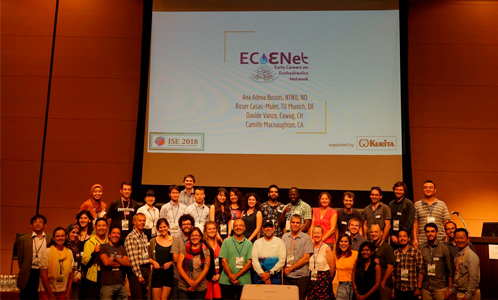 Roser: I think in terms of scope, both the technical committee on Ecohydraulics and EcoENet are going in the same direction. In a way, the role of ECoENet is to connect early career researchers (ECRs) with well-established researchers in the Ecohydraulics community. ECoENet’s idea started in 2014, at ISE Trondheim, driven by the need to support ECRs in their interdisciplinary Ecohydraulics journey. ECRs are the next generation of scientists who will help solve the critical issues in water management, so they are crucial, but usually the most vulnerable group in the scientific community. We thought that students joining the Ecohydraulics conference for the first time could find the interdisciplinary and varied environment a bit overwhelming given our still very disciplinary-oriented university education system. For a student in hydraulic engineering who has an interest in ecology, or an ecologist who has an interest in river morphology, it’s very hard to navigate between disciplines, or to even know who and how to ask. Therefore, ECoENet was created as a platform for ECRs to meet peers and senior researchers beyond their disciplinary field through informal events linked to the main conference (e.g. workshops, ice-breakers).
Roser: I think in terms of scope, both the technical committee on Ecohydraulics and EcoENet are going in the same direction. In a way, the role of ECoENet is to connect early career researchers (ECRs) with well-established researchers in the Ecohydraulics community. ECoENet’s idea started in 2014, at ISE Trondheim, driven by the need to support ECRs in their interdisciplinary Ecohydraulics journey. ECRs are the next generation of scientists who will help solve the critical issues in water management, so they are crucial, but usually the most vulnerable group in the scientific community. We thought that students joining the Ecohydraulics conference for the first time could find the interdisciplinary and varied environment a bit overwhelming given our still very disciplinary-oriented university education system. For a student in hydraulic engineering who has an interest in ecology, or an ecologist who has an interest in river morphology, it’s very hard to navigate between disciplines, or to even know who and how to ask. Therefore, ECoENet was created as a platform for ECRs to meet peers and senior researchers beyond their disciplinary field through informal events linked to the main conference (e.g. workshops, ice-breakers).
Networking is of primary importance for international research associations; a fruitful collaboration is when juniors can connect with seniors. Are there any on-going or forthcoming activities that could trigger such connections where the TC is involved?
Gregory: I have noticed that the number of positions being advertised in Ecohydraulics is skyrocketing- there are a lot of opportunities out there. This allows PhD students to continue their career as researchers in the field after their studies. When PhD students move to a new place to do a postdoc, they gain a broader viewpoint on Ecohydraulics, and these positions also introduce PhD students from various disciplines to the interdisciplinary world of the field. Now there is also the upcoming 1st IAHR Young Professionals Congress in November and this is going to be exciting, with a session on Ecohydraulics, so we can provide mentoring to the people attending the conference. And then there is also the IAHR technical committee leadership team on Ecohydraulics, which is trying to set up a number of events. We are also fortunate that the ECoENet community is as strong as it is, as it is already doing much on its own, ensuring that students can be present at the conference and other events.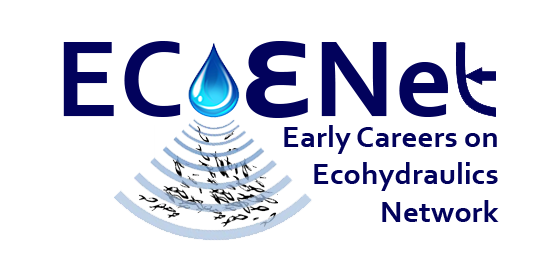
Roser: I would also like to add that ECoENet’s pre-conference workshops have received a great support from mentors and established researchers like Greg Pasternack. For instance, at the ISE in Tokyo in 2018 a number of established researchers participated in a pre-conference event to discuss actions that can be done to improve interdisciplinary cooperation in Ecohydraulics. In terms of future programmes, at ECoENet we are working to develop a mentorship programme. Based on previous experiences, however, we realize that mentorship is not something you can create from a rigid design; instead mentor-mentee relationships should grow organically. Therefore, careful thinking and further discussions with members of the community on how to facilitate these links are necessary. It will also be great to share experiences with the IAHR YPNs and the EPD-technical committee.
This year IAHR turns 85 and the association is organising a summit to celebrate such a great achievement. How is the technical committee on Ecohydraulics going to participate or contribute?
Gregory: For the World Congress, Ecohydraulics is one of the subthemes, so there will be a lot of general submissions involved with the topic. I am aware of 4 special session proposals that relate to Ecohydraulics on a range of topics from interactions between the vegetation, river processes, on the fluid mechanics scale, and also on the marine environment. And then there is also one on nature-based solutions which transcends Ecohydraulics but certainly includes it too.
Roser: Regarding the involvement of ECoENet in the IAHR World Congress, we are planning to support the YPN challenge, for which we are preparing an Ecohydraulics case study to hopefully involve many ECRs and young professionals in the topic. If needed, we can definitely work towards a new deadline or prepare something online beforehand.
The 13th International Symposium on Ecohydraulics (ISE 2020) is another event that has been postponed this year. Instead, a web seminar is scheduled for next month. How is the new setup going to affect the event?
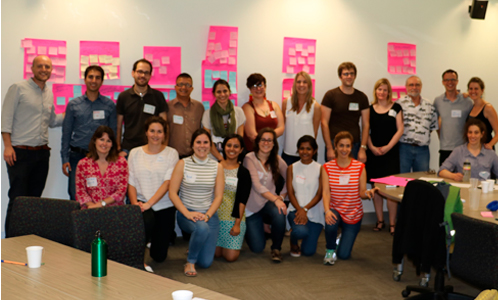 Roser: Having a hybrid approach is perhaps something to be reconsidered in the future. There is a geographical underrepresentation from many countries in Latin America or Africa in Ecohydraulics. So offering online events might be a good option to make sure that we involve as many countries as possible. One of the cons, obviously, is the human factor. Many people look forward to the conference to meet people with whom it would otherwise be very difficult to meet face to face. For me, a hybrid approach seems like a good compromise to get the best from both worlds. This year, given the extremely difficult circumstances, the ISE Local Organising Committee (LOC) have done their best to keep an Ecohydraulics online presence, and also to try to keep up with the rhythm.
Roser: Having a hybrid approach is perhaps something to be reconsidered in the future. There is a geographical underrepresentation from many countries in Latin America or Africa in Ecohydraulics. So offering online events might be a good option to make sure that we involve as many countries as possible. One of the cons, obviously, is the human factor. Many people look forward to the conference to meet people with whom it would otherwise be very difficult to meet face to face. For me, a hybrid approach seems like a good compromise to get the best from both worlds. This year, given the extremely difficult circumstances, the ISE Local Organising Committee (LOC) have done their best to keep an Ecohydraulics online presence, and also to try to keep up with the rhythm.
Gregory: I really want to acknowledge the LOC from Lyon. They worked incredibly hard and they had a tremendous vision for what they wanted to do for their scientific programme. I really appreciate the efforts that they put in; it was very meaningful for the whole community. We used to have between 300 and 400 participants, so switching to a web event is a big transition. And I think that looking to the future, there can be support from IAHR in helping to design these hybrid events, as this is an enormous undertaking for a local organising committee just to do the in-person part. Now they have to do a second whole level of effort and this is very hard. We should look for a teamwork approach to work together with IAHR to find common solutions, figure out what works, and try to roll out maybe a more centralized model. It is wonderful if we can have more people participating from around the world and we will have to find ways to have more social engagement.
Any message to the ISE 2020 participants?
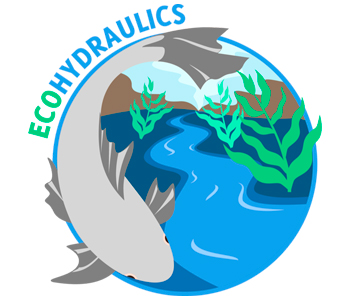 Gregory: I encourage them to visit our website. We are building content in support of the community, as well as on the new ECoENet website, where new content is going to be rolling out soon. We keep developing ways in which we can all communicate, interact, and share information globally. I hope we can provide a good place for engagement.
Gregory: I encourage them to visit our website. We are building content in support of the community, as well as on the new ECoENet website, where new content is going to be rolling out soon. We keep developing ways in which we can all communicate, interact, and share information globally. I hope we can provide a good place for engagement.
Roser: I would add that there is an exciting programme, with many activities and sessions on key topics that are also related to upcoming special issues. I would also like to highlight the ECoENet morning session in day 2, where the topic of geographical and topical representation will be tackled. In the afternoon (also day 2), we will have our EcoENet biennial meeting to select new committee members, and to discuss our progress so far and future plans. Please, keep an eye out for updates on the website in the coming days, make sure to be online on 23 and 24 November!
Our members, their views, knowledge, commitment, and experiences are what make IAHR a global leading association of hydro-environmental engineers, experts, researchers, and organisations. IAHR members’ voices and concerns guide the association on its continuing path towards a better future for water and the environment. Our members have a lot to contribute and we are listening to them so that we can put our collective voice forward.